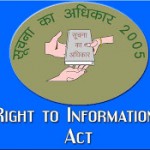 The Single Bench of the Delhi High Court headed by Justice Pratibha Singh, in its recent order in Prashant Reddy v DCGI, came down heavily on the drug regulator for egregious violation of the Right to Information Act.
The Single Bench of the Delhi High Court headed by Justice Pratibha Singh, in its recent order in Prashant Reddy v DCGI, came down heavily on the drug regulator for egregious violation of the Right to Information Act.
The case arose in relation to the report of Dr. T.M. Mohapatra Committee, a committee which was constituted by the Drugs Controller General of India pursuant to the scathing criticisms in the 59th Parliamentary Standing Committee Report on the existing mechanism for approval of drugs in India. Prashant had earlier covered the key findings of the Parliamentary Standing Committee here. On perusing the Parliamentary Standing Committee report, one may wonder whether the lackadaisical approach of the regulatory system can only be treated as a mere function of its incompetency and ineptitude. Some of the key findings of the Parliamentary Standing Committee were: (i) the absence of local clinical trials for new drugs (since the response levels of people of different ethnicities vary, local clinical trials are relevant for evaluating the effects of new drugs); (ii) files regarding certain controversial drugs were missing from the Central Drug Standards Control Organization (CDSCO); and (iii) certain drugs were cleared based on dubious expert medical opinions.
The petitioner made several unsuccessful attempts to obtain the copy of Dr. T.M. Mohapatra Committee report under the RTI Act. When the petitioner approached the Central Information Commission (CIC) for obtaining the copy of the aforesaid report, an incomplete copy of the report was made available to the petitioner. The petitioner, thereafter, filed a writ petition before the Delhi High Court for a copy of the complete report and sought directions for digitization of all the records of the DCGI in respect of the clinical trials. Though notice was issued on 29 September 2020, the DCGI has so far not filed a counter affidavit. Taking a serious exception to the blatant violation of RTI Act, the High Court imposed costs of Rs. 25,000 on the DCGI. Further, if the counter affidavit is not filed and/or costs are not paid, then a senior official of the DCGI has to be present in-person on 19 March 2021 (the next date of hearing). The DCGI has also been asked to file a status report in relation to the digitization of its records.
From the directions issued by the Court, it is evident that the Court has taken a serious note of the flagrant violation of the RTI Act. The CDSCO, in its submissions to the CIC, revealed that it did not have this vital report and therefore, it had to procure the report (in the form available) from Dr. T.M. Mohapatra himself. On receiving this absurd request, even Dr. T.M. Mohapatra, in all likelihood, might have wondered where his report finally ended up!!
It is quite encouraging that the Delhi High Court has taken a pro-active stand in protecting the value of transparency; a value that lies at the heart of good governance. Unless the report is made public in toto, it will be difficult to evaluate the startling findings of the Parliamentary Standing Committee.
Participative democracy and eternal vigilance of the citizenry
The 2nd Administrative Reforms Commission report notes that, “The Right to Information Act is a path-breaking legislation which signals the march from darkness of secrecy to dawn of transparency. It lights up the mindset of public authorities, which is clouded by suspicion and secrecy. Openness in the exercise of public power – Executive, Legislative or Judiciary – is a culture, which needs to be nurtured, with privacy and confidentiality being an exception. The right to information will also be a powerful means for fighting corruption. The effective implementation of the Right to Information Act will create an environment of vigilance which will help promote functioning of a more participatory democracy.” (Preface of Right to Information – Master Key to Good Governance)
[The theses on transparency and eternally vigilant citizenry are in line with the scholarship of Prof. John Dewey – the acclaimed American philosopher and psychologist who taught Dr. B.M. Ambedkar in Colombia University from 1913 – 1916. Prof. Dewey refused to view democracy as a single-faceted political concept. On the other hand, he perceived it as an ethical ideal where an educated citizenry, armed with scientific temperament, participates in it. Dr. Ambedkar is said to have stated that he owed his entire intellectual life to Prof. Johan Dewey.]
 Coming to the practical realities (i.e. a vital report in its entirety or its parts being missing), one can legitimately wonder at the gulf between things “as they should be” and realities “as they are”. Since the Delhi High Court has now given a clear indication that it is prepared to come down heavily on the regulator in case of non-compliance with the RTI Act, let us hope that the full report will finally see the light of day.
Coming to the practical realities (i.e. a vital report in its entirety or its parts being missing), one can legitimately wonder at the gulf between things “as they should be” and realities “as they are”. Since the Delhi High Court has now given a clear indication that it is prepared to come down heavily on the regulator in case of non-compliance with the RTI Act, let us hope that the full report will finally see the light of day.
